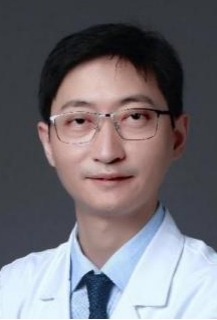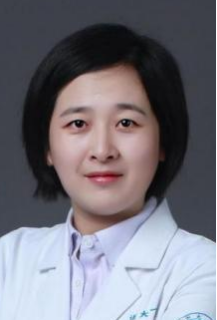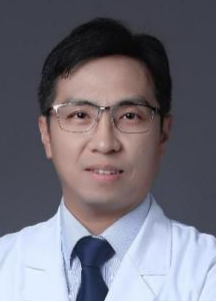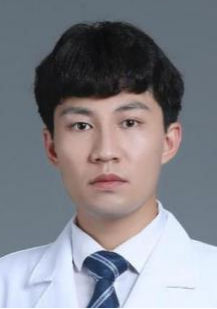PAN Jian, Ph.D.
Deputy Director
Emergency and acute poisoning cases
Dr. PAN interest in cardiopulmonary resuscitation, severe sepsis and septic shock, toxic brain edema and fulminant myocarditis.

The Emergency Department of FAHZU is one of the best emergency departments in China. It is also the Zhejiang Provincial Center for Poisoning Emergency and Prevention. In order to increase international exchanges, this project plans to improve the emergency skills of medical staff in an international context through diversified and practical training, promote the internationalization process of emergency department training, and better serve international patients.
This project covers practical first aid skills, emergency response to acute poisoning, disease diagnosis and treatment. By combining theoretical learning with practical training, the aim is to comprehensively enhance the emergency skills and professional competence of emergency doctors.
The goal of our program is to prepare trainees to achieve excellence in the clinical management of patients with simple and complex poisoning and trauma, including multiple emergency skills. Through exposure to a range of doctors engaged in diverse clinical treatment in common acute and critical disease, especially in poisoning and trauma, we aim to provide our advanced trainees a strong foundation in emergency skills and professional competence.
The program provides a 1-week training experience. In special circumstances, arrangements can be made for other lengths of training depending on your needs and interests.
• Fellows: Qualified applicants for the Emergency Fellowship must have completed an emergency residency program at an accredited institution.
• Residents: To be eligible for the Emergency residency, you must have successfully completed a board-approved program in emergency. Your emergency program may be completed either through Zhejiang University School of Medicine of Graduate Medical Education or another accredited program.
• Students:
1. Must be a final-year medical student when you are scheduled to participate in the rotation. This means all your core/required clerkship rotations are complete at the time of the clinical elective.
2. Medical School Approval - Letter of good standing from the dean’s office of your medical school indicating you are in the final year with your expected graduation date, in good academic standing and meet all requirements to complete an elective for academic credit.
Focus Areas & Subspecialties:
1. Poisoning
2. Trauma
Emergency advanced skills: ACLS, fast ultrasound, bronchoscopy, ECMO, etc.
Monday
Introduction & welcome, program overview and objectives, department introduction.
Topic: Poisoning (ZHANG Qin)
1. Technical specification for health emergency treatment of acute poisoning incidents
2. On-site disposal and decontamination technology for sudden public health emergencies
3. Personal protection during sudden public health emergencies
4. Antidote and Toxicology Laboratory Workshop
5. Acute pesticide poisoning case simulation exercise
6. Course Review Summary
Tuesday
Topic: Trauma (WANG Xuxuan)
1. Literature sharing on the progress in the field of trauma
2. Trauma assessment
3. Trauma scoring system
4. Principles of trauma treatment
5. Case sharing
Wednesday
Topic: Fast ultrasound (LI Dongdong)
1. Basic knowledge of ultrasound machine application
2. Basic theory of multi-organ ultrasound application
3. Ultrasound applications in multi-Organ clinical practice
4. Focused assessment with sonography in trauma patients with stable vital signs
5. Extended focused assessment with sonography in trauma patients with unstable vital signs
Thursday
Topic: ACLS (PAN Jian)
1. Journal club
2. Simulation learning of acute chest pain case scenarios (CPTP)
3. ACLS case medical team in situ simulation exercise
4. Course review and summary
5. Group photo and farewell banquet
Friday
Topic: Bronchoscopy and ECMO (SHANG Andong)
1. Journal club
2. Simulation learning of fiberoptic bronchoscopy case scenario
3. Simulation learning of ECMO case scenario
4. Course review and summary
After training, each faculty member evaluates each fellow according to core competencies of medical knowledge, practice-based learning and improvement, interpersonal and communication skills, professionalism, and system-based practice. Faculty members meet with fellows individually for verbal feedback and evaluation. For emergency skills, technical competence is evaluated through specifically designed evaluation forms and a simulator laboratory.

Deputy Director
Emergency and acute poisoning cases
Dr. PAN interest in cardiopulmonary resuscitation, severe sepsis and septic shock, toxic brain edema and fulminant myocarditis.

Attending physician
Dr. ZHANG has interest in poisoning, cardiopulmonary resuscitation, and other common acute and critical diseases.

Dr. SHANG interest in cardiopulmonary resuscitation, shock, respiratory failure, poisoning and other common acute and critical illness.

Doctor-in-charge, Emergency and Critical Care Medicine
Dr. LI specializes in trauma, multiple injuries, and sepsis, emphasizing ultrasound-guided multi-organ function support in critical illness. He is also interested in ultrasound-guided assessments of multi-organ function and hemodynamics in his practice.

Dr. WANG mainly focuses on the treatment of multiple injuries, nerve injury and repair, and the treatment of multiple organ dysfunction after trauma.
The program is free of charge.